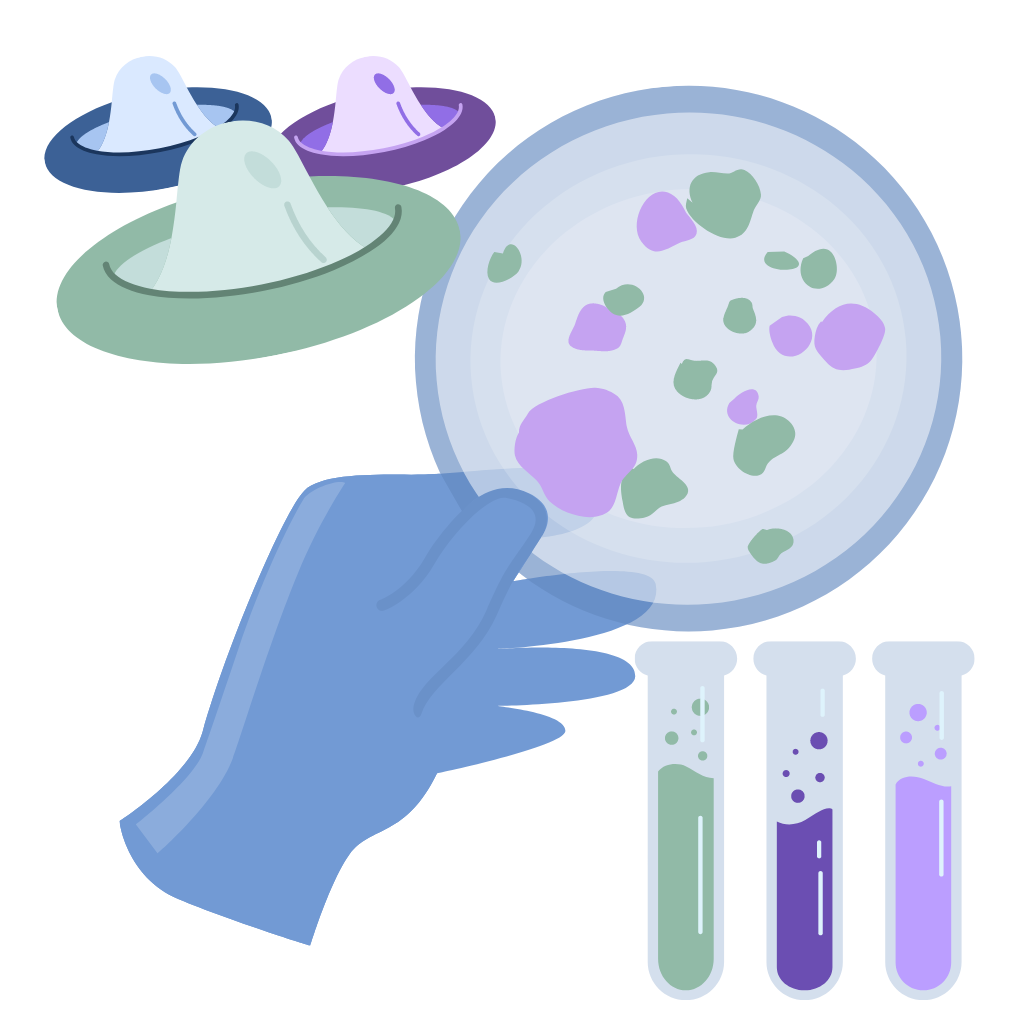Sexually Transmitted Infections (STIs) are bacterial and viral infections that are passed from one person to person intimate contact such as anal, oral, and vaginal sex. Examples of common STIs include chlamydia, gonorrhea, genital herpes, human papillomavirus (HPV), syphilis, and HIV.
Many STIs do not show symptoms, so the only way to know for sure if you have an STI is to get tested. Even without symptoms, many STIs can cause damage.
The good news is all STIs are treatable, and most are curable! Testing and early treatment are key to maintaining your sexual health and the health of your partner(s).

What is syphilis?
Syphilis is a sexually transmitted infection (STI), meaning you can get it by having sex (oral, anal, or vaginal) with someone who has syphilis.
Who can get syphilis?
Syphilis can affect anyone who has unprotected sex, regardless of gender or orientation.
How do I know if I have syphilis?
The only way to know for sure is a simple blood test. If you are sexually active, you should be tested for syphilis. Health departments can confidentially test you and your partner(s) any time for syphilis, at little or no cost!
Some common signs and symptoms include:
Symptoms change as time goes on, and some people may not notice any symptoms, so it’s best to regularly get tested for STIs.
Can syphilis be treated?
YES! Syphilis is treatable and curable with antibiotics.
Getting treatment right away can prevent irreversible damage to your heart and brain, deafness or blindness, and other serious health problems.
It’s possible to get syphilis again if re-exposed or if all partners are not treated.
Your local health department can help notify your partner(s) anonymously so they can get tested and treated.
What is congenital syphilis?
When syphilis is passed from a pregnant person to their baby, it’s known as congenital syphilis (CS). Congenital Syphilis can cause serious health problems for your baby like:
If you are pregnant, can become pregnant, or partnered to someone with the capacity for pregnancy, getting tested for syphilis is very important. If you are pregnant, you should be tested at the first and third trimester of your pregnancy. In order to prevent a baby being born with CS, the pregnant person must receive treatment at least 30 days before delivery.
Where can I get testing and treatment?
Your local health department can confidentially test you and your partner(s) any time at little or no cost. The health department can also help notify your partner(s) anonymously so they can also get tested and treated.
How is hepatitis B virus spread?
How long does hepatitis B virus last?
Can hepatitis B virus be life-threatening?
Can hepatitis B virus be treated?
What are the symptoms of hepatitis B virus?
How is hepatitis B virus prevented?
Is there a vaccine for hepatitis A virus?
How do you know if you have hepatitis B virus?
Where can I find more information about hepatitis B virus?
How long does hepatitis C virus last?
Can hepatitis C virus be life-threatening?
Can hepatitis C virus be treated?
What are the symptoms of hepatitis C virus?
How is hepatitis C virus prevented?
Is there a vaccine for hepatitis C virus?
How do you know if you have hepatitis C virus?
Where can I find more information about hepatitis A virus?
What are DIS?
Placeholder for describing role of DIS


Important Links
© 2022 End The Syndemic TN. All rights reserved.